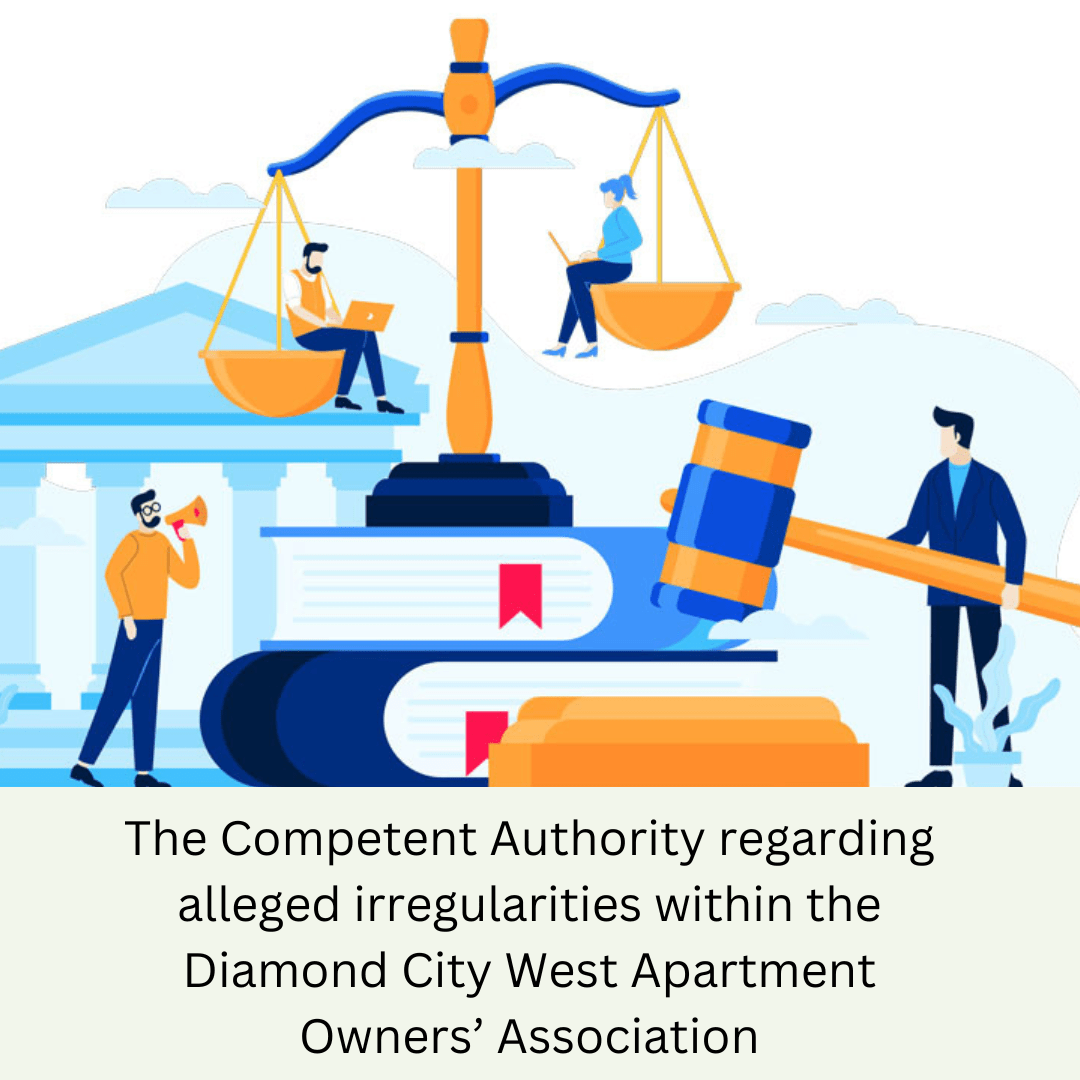The Calcutta High Court recently passed a verdict in response to a petition seeking the Court’s guidance on the obligations of the Competent Authority regarding alleged irregularities within the Diamond City West Apartment Owners’ Association (Association). The petition, brought before a single-judge bench presided over by Justice Sabyasachi Bhattacharyya, highlighted concerns about the Association’s illegal activities under Section 16-B of the West Bengal Apartment Ownership Act, 1972.
The petitioner, a flat owner and Board Manager of the said Association, lodged formal complaints about the Association’s unlawful conduct, including misappropriation of funds, with the relevant authorities. However, these complaints were allegedly disregarded. The petitioner, fearing potential manipulation of accounts once the evidence was handed over to the accused parties (respondents 2 to 11, who were allegedly involved in the misconduct), sought the intervention of the Court.
The petitioner diligently communicated these concerns through emails and WhatsApp messages, alleging that these vital complaints were intentionally suppressed by the respondent authorities. Additionally, it was revealed that the Association’s President had deliberately omitted these issues from the agendas of both Annual General Meetings (AGMs) and Special General Meetings (SGMs).
Furthermore Calcutta High Court
The petitioner pointed out a significant lapse in the Association’s internal structure: at the time the complaints were raised (as indicated in Annexure P-10), there was no operational Grievance Redressal Committee due to the resignation of two members who had also assumed roles as Board Managers. This Committee was only reinstated subsequent to the filing of the writ petition, with members handpicked by the respondents.
In light of these grievances, the petitioner approached the High Court, arguing that the Competent Authority was legally bound to investigate the alleged irregularities under Section 16-B of the Act. The Court meticulously considered the presented evidence and arguments before reaching a decisive conclusion.
Justice Sabyasachi Bhattacharyya unequivocally held that the Competent Authority indeed had a mandatory duty to probe the complaints concerning the Association’s functioning. Rejecting the counterarguments raised by the respondents, the Court emphasized the right of individual members, like the petitioner, to file complaints with the Competent Authority when faced with significant concerns about the Association’s conduct.
As a remedial measure, the Court issued a direct order to the Competent Authority, instructing them to conduct a preliminary investigation into the matter. Furthermore, the Authority was directed to formulate an opinion on the complaints within a stipulated timeframe of two weeks. This decisive legal directive aimed to ensure accountability and transparency within the functioning of the Association, offering a ray of hope to the petitioner and other concerned members.
In essence, the Calcutta High Court’s ruling served as a beacon of justice, upholding the rights of individual association members and reinforcing the principle of accountability within residential complexes governed by the West Bengal Apartment Ownership Act, 1972. Through this landmark decision, the Court reaffirmed the importance of proper investigation and resolution of grievances, thereby fostering an environment of trust and legality within the realm of apartment owners’ associations.

Is it necessary for the Competent Authority to investigate the petitioner’s complaints about the Association’s functioning under the Act?
The petitioner argued that Bye-Law 16(4) in the West Bengal Apartment Ownership Bye-Laws, 2022, is not obligatory. They highlighted a discrepancy in the number of car parking spaces stated in the society’s declaration deed under the West Bengal Apartment Ownership Rules, 1974, insisting on necessary amendments. However, respondents 2 to 11 failed to rectify this inconsistency.
The respondent 1, the Competent Authority, contended that the Act does not empower them equivalent to a Civil Court. Disputes in question exceed their jurisdiction, as they cannot arbitrate disputed facts, a matter for Civil Courts. The Act doesn’t grant the right to members, managers, or office bearers to petition the Competent Authority. Additionally, the Act lacks provisions barring Civil Court jurisdiction. They argued that Section 16-B(2) permits action only on substantiated complaints of majority members concerning statutory compliance or Bye-Laws.
Respondents 2 to 11 alleged the writ petition disguises private disputes as Article 226 representations, finding no statutory violation to justify Article 226 intervention.
Legal Principles
Under Section 16-B of the Act, the Competent Authority is empowered to investigate and act when an Association’s Board of Managers or Manager fails in their duties, adversely affecting the Association, apartment owners, or public interest. The Competent Authority can act on its own or based on complaints, without requiring Association or majority member endorsements.
Court’s Assessment
The Court clarified that ongoing disputes between the Association and the promoter don’t bar the Competent Authority from investigating allegations raised by an individual member about the Association’s functioning. The Authority’s jurisdiction isn’t limited to complaints by the Association or its majority; it extends to cases implicating the Association’s management in alleged wrongdoings.
The argument that individual complaints need the Association’s backing to be valid before the Competent Authority was deemed legally unfounded. The Court emphasized the Authority’s role in investigating such claims, dismissing opposition as premature and unjustified.
The Court directed the Competent Authority to initiate a preliminary investigation and decide whether to issue a show-cause notice to the Manager/Board of Managers based on the allegations.
Court’s Decision
The Court affirmed the Competent Authority’s obligation to conduct a preliminary inquiry into the petitioner’s complaints regarding the Association’s alleged irregularities. The Authority must form an opinion under Section 16B(2) of the Act to determine if a show-cause notice is warranted for the Manager/Board of Managers. This investigation is to be completed within two weeks from the date of the decision.
The Court rejected the request for a stay order, deeming it unnecessary given the order’s nature.
Must Read:- Selection Process for ADA and DDA positions in Punjab and Haryana High Court









Leave a Reply